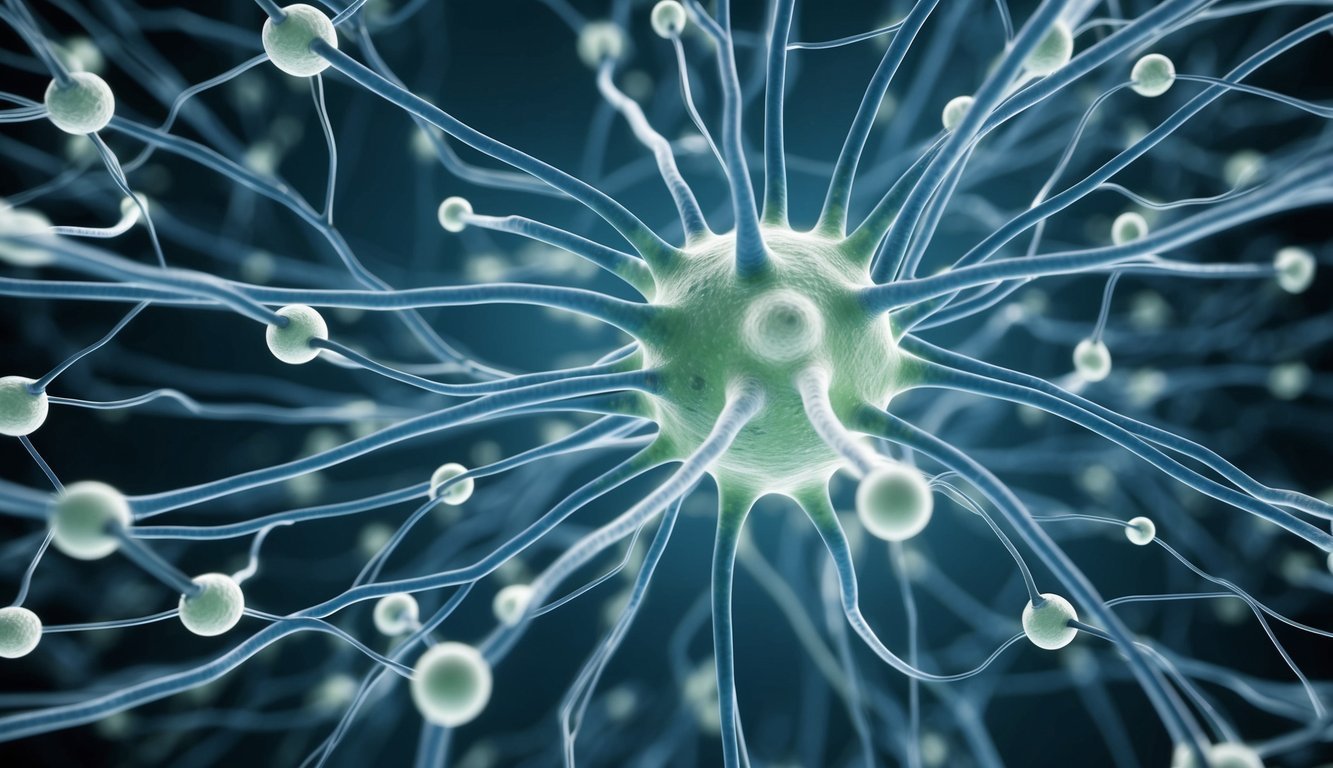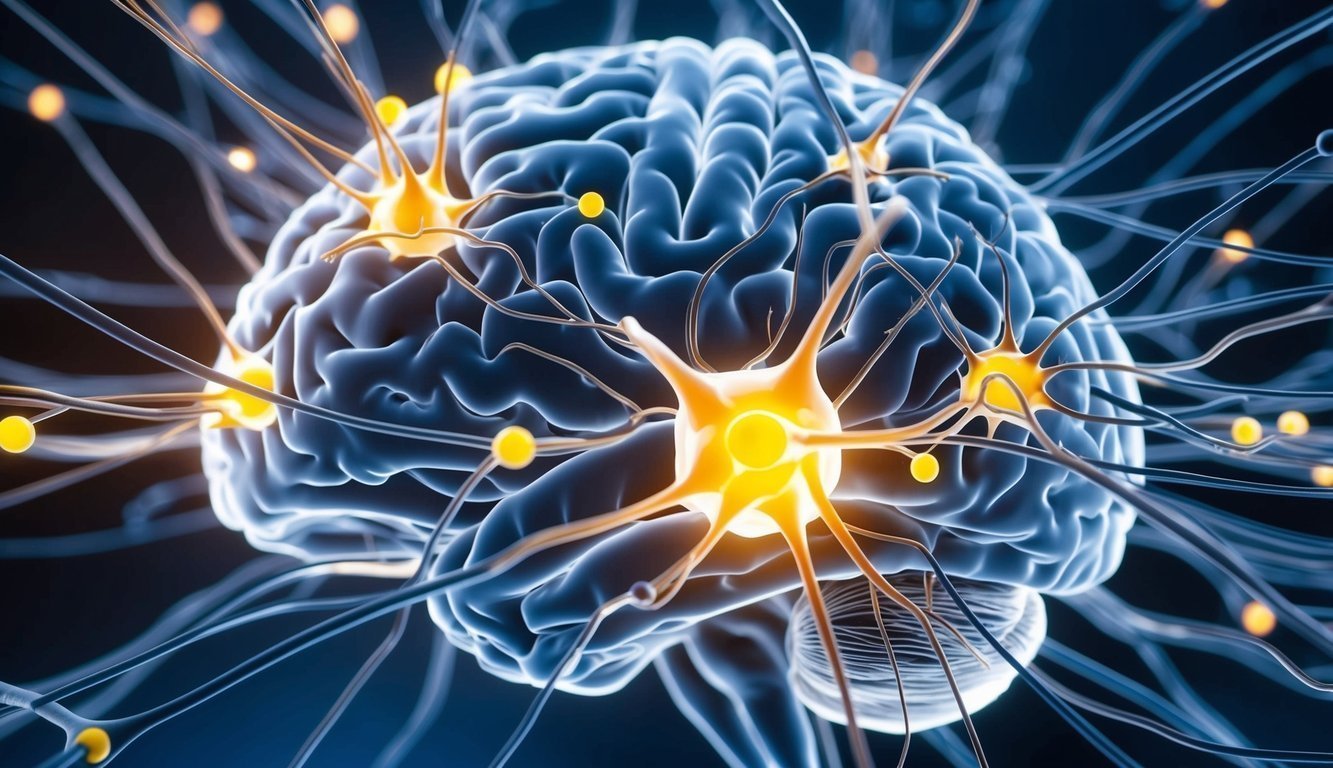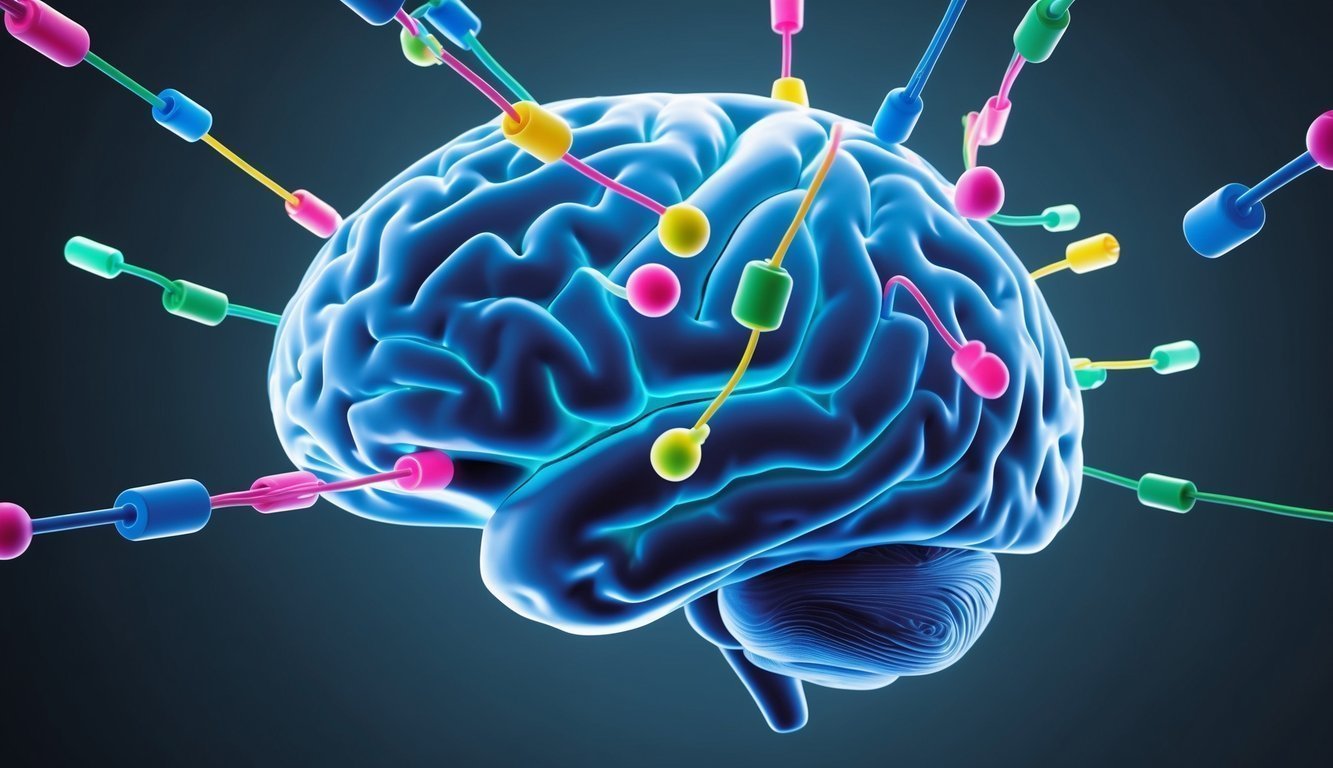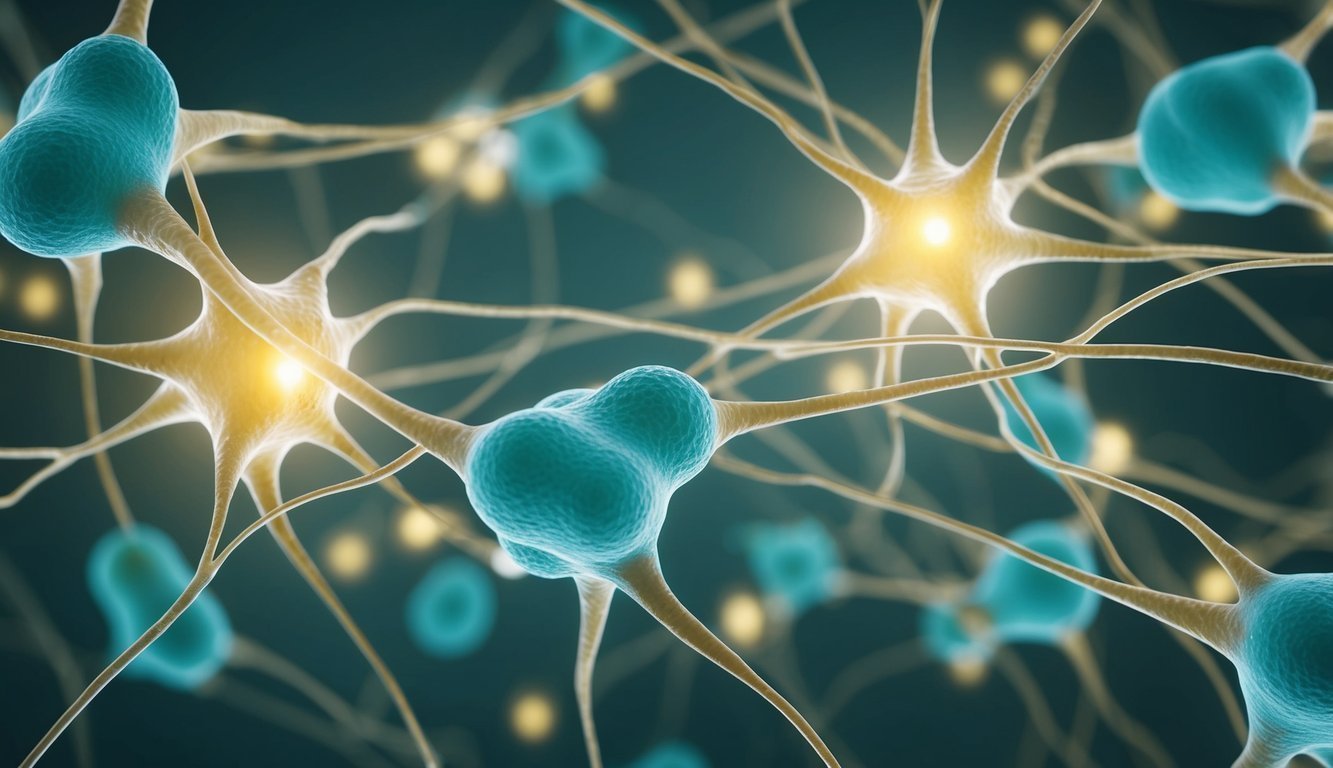PsychNewsDaily Publishers
100 Summit Drive
Burlington, MA, 01803
Telephone: (320) 349-2484
PsychNewsDaily Publishers
100 Summit Drive
Burlington, MA, 01803
Telephone: (320) 349-2484
Neurotransmitters are chemical messengers that facilitate communication between neurons, influencing mood, cognition, and bodily functions, and are crucial for overall neurological health.

Neurotransmitters are essential in ensuring effective neural communication, allowing for the transmission of information between neurons. These chemical messengers enable a wide array of physiological and psychological functions within the nervous system.
Neurotransmitters are chemical agents that transmit information between neurons. When an action potential reaches the axon terminal, these compounds are released from the presynaptic neuron into the synaptic cleft. They then attach to specific receptors on the postsynaptic cell, initiating a reaction in the receiving neuron.
The neurotransmission process includes several key steps:
Neurotransmitters significantly affect various brain functions, including mood, cognition, and behavior. They are crucial for regulating sleep, appetite, and pain perception.
Neurotransmitters can be classified into several categories based on their chemical structure and functions. The major classifications include:
Each neurotransmitter possesses distinct characteristics and impacts on neuronal activity. For instance, glutamate serves as the primary excitatory neurotransmitter in the brain, whereas GABA functions as the main inhibitory neurotransmitter.
Neurotransmitters such as dopamine and serotonin are vital in regulating aspects of mood and motivation. In contrast, substances like acetylcholine are crucial for memory formation and muscle contraction.

Neurotransmitters are vital for transmitting signals across the nervous system. These chemical messengers facilitate communication between neurons and govern numerous physiological processes.
Neurotransmitters are crucial for information transfer within the central nervous system. They are released from presynaptic neurons and bind to receptors on postsynaptic cells, ensuring efficient signal transmission.
In the brain, neurotransmitters play a vital role in governing mood, cognition, and behavior. For example, serotonin regulates mood and sleep patterns, while dopamine is linked to reward and motivation.
Furthermore, neurotransmitters are instrumental in learning and memory. Glutamate, as the primary excitatory neurotransmitter, is essential for synaptic plasticity and long-term potentiation.
Disruptions in neurotransmitter levels can lead to a range of neurological and psychiatric disorders. Ongoing research aims to understand these chemical messengers better to create targeted treatments for conditions such as depression and anxiety.
The autonomic nervous system depends on neurotransmitters to manage involuntary bodily functions. This system is divided into two primary branches: the sympathetic and parasympathetic nervous systems.
Norepinephrine is the primary neurotransmitter in the sympathetic nervous system, provoking the “fight or flight” response, which raises heart rate and blood pressure.
Meanwhile, the parasympathetic nervous system relies predominantly on acetylcholine to mediate “rest and digest” functions, slowing heart rate and supporting digestive processes.
Neurotransmitter transporters are critical for maintaining appropriate levels of neurotransmitters in the synaptic cleft, aiding in proper signaling and preventing excessive stimulation of nerve cells.
Researchers are actively investigating the intricate relationships between neurotransmitters and the autonomic nervous system to enhance our understanding of various physiological functions and to develop new therapeutic strategies.

Neurotransmitters serve as crucial chemical messengers that facilitate various physiological processes. These molecules enable communication between neurons and influence behaviors, emotions, and bodily functions. The following sections delve into five primary neurotransmitters and their main roles in the human body.
Acetylcholine is a key neurotransmitter that significantly influences muscle contraction. It serves as the link between nerve cells and muscle fibers at the neuromuscular junction. When acetylcholine is released, it attaches to receptors on muscle cells, initiating a process that results in muscle contraction.
This neurotransmitter is also essential for cognitive functions, including memory formation and learning. In the brain, acetylcholine promotes alertness and attention, making it vital for effective information processing and retention.
Conditions related to acetylcholine imbalance can lead to various health issues. For instance, low acetylcholine levels are linked to Alzheimer’s disease, which negatively impacts memory and cognitive abilities.
Serotonin is often dubbed the “feel-good” neurotransmitter due to its profound influence on emotional well-being. It plays a significant role in mood regulation and is associated with feelings of happiness and satisfaction.
In addition to mood regulation, serotonin affects several bodily functions:
Low levels of serotonin are linked to depression and anxiety disorders. Many antidepressant medications function by enhancing serotonin availability in the brain, alleviating symptoms associated with these conditions.
Interestingly, the majority of the body’s serotonin is produced in the gut, illustrating the intricate relationship between digestive health and mental well-being.
Dopamine is a neurotransmitter central to the brain’s reward pathway. It is released in response to pleasurable experiences, reinforcing behaviors that lead to positive outcomes, marking its crucial role in motivation, learning, and habit formation.
Dopamine’s primary functions include:
Disruptions in dopamine levels can lead to numerous neurological and psychiatric disorders. For example, Parkinson’s disease results from a decrease in dopamine within specific brain areas, causing movement-related symptoms. Conversely, excessive dopamine is linked to conditions like schizophrenia and certain addictive behaviors.
Dopamine’s interactions with other neurotransmitters create multifaceted networks that influence behavioral and cognitive functions.
Gamma-aminobutyric acid (GABA) functions as the primary inhibitory neurotransmitter in the central nervous system, reducing neuronal excitability and effectively “calming” brain activity.
GABA’s principal roles include:
Insufficient GABA levels are associated with anxiety disorders, insomnia, and epilepsy. Many anti-anxiety medications and sleep aids enhance GABA activity within the brain.
Moreover, GABA is involved in cognitive functions like memory and learning, aiding in the modulation of neural circuits to maintain a balance between excitation and inhibition.
Glutamate is the predominant excitatory neurotransmitter in the vertebrate nervous system. It is integral for fast synaptic transmission and plays a vital role in learning and memory functions.
Key roles of glutamate include:
Glutamate is critical for long-term potentiation, a process believed to underlie learning and memory formation due to its role in strengthening synaptic connections.
While essential for healthy brain function, elevated levels of glutamate can be neurotoxic. Disruptions in glutamate signaling are linked to various neurological conditions, including epilepsy, stroke, and neurodegenerative disorders like Alzheimer’s and Huntington’s.
Research focusing on glutamate has prompted the development of innovative treatments for conditions such as depression and anxiety disorders.

Imbalances in neurotransmitters can greatly impact mental and neurological health. These chemical messengers are vital in controlling mood, cognitive functions, and motor abilities.
Abnormal neurotransmitter functioning has been linked to various mental health disorders. Low levels of serotonin and norepinephrine are often observed in cases of depression. Anxiety disorders may arise from disruptions in GABA and glutamate levels.
Schizophrenia has connections to dopamine dysregulation. Mood disorders, such as bipolar disorder, exhibit changes in multiple neurotransmitter pathways.
Insomnia often stems from imbalances in melatonin and serotonin signals. Addiction can disrupt dopamine pathways, resulting in cravings and reward dysfunction.
The body’s stress responses are mediated by neurotransmitters like cortisol and norepinephrine. Chronic stress may deplete these chemicals, leading to anxiety and depression.
Dysregulation of neurotransmitter systems is a common characteristic of numerous neurodegenerative diseases. For instance, Parkinson’s disease is associated with the progressive loss of dopamine-producing neurons, resulting in motor function issues.
Alzheimer’s disease impacts several neurotransmitter systems, including acetylcholine, which plays a vital role in memory and cognition, contributing to cognitive decline in affected individuals.
Epilepsy is often characterized by imbalances between excitatory and inhibitory neurotransmitters, particularly glutamate and GABA, leading to seizures and potential neuronal damage.
As people age, natural changes in neurotransmitter production and function may occur, which can contribute to cognitive deterioration and an increased risk of neurodegenerative disorders in older adults.

The action of neurotransmitters is regulated by complex mechanisms that precisely adjust synaptic transmission. This regulation involves receptors, synaptic vesicles, and various modulating substances that can enhance or suppress the effects of neurotransmitters.
Receptors are fundamental to neurotransmitter functionality. Upon binding to their specific receptor on the target cell, neurotransmitters elicit a chain of events that can either excite or inhibit the cell, adhering to stringent regulatory mechanisms.
Synaptic vesicles containing neurotransmitters merge with the presynaptic membrane, discharging their contents into the synaptic cleft. Factors affecting the number of vesicles or their release probability can modulate synaptic transmission strength.
Neuromodulators, such as amino acids, peptides, and biogenic amines, can modify the effectiveness of synaptic transmission, often acting over longer periods compared to classical neurotransmitters, thereby influencing neural circuits on a broader scale.
A variety of medications and recreational drugs interact with neurotransmitter systems. Certain drugs specifically target receptors, while others influence neurotransmitter reuptake or degradation processes.
For instance, cocaine inhibits the reuptake of dopamine, resulting in heightened dopaminergic activity, which is a key factor in its addictive properties.
Opioids affect specific brain receptors, altering pain perception and eliciting feelings of euphoria. These substances can profoundly impact neurotransmitter function, leading to dependency and addiction.
Regular exercise has demonstrated a beneficial effect on neurotransmitter systems, potentially enhancing the release of endorphins and other neurotransmitters, which may improve mood and cognitive capabilities.
“`